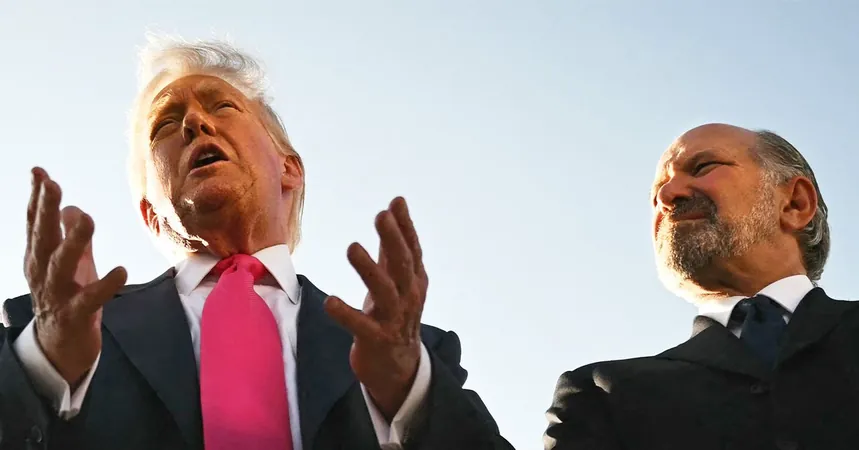
Is Trump’s Bold Move on Intel Set to Transform the Chip Industry?
2025-08-21
Author: Chun
A Shocking Shift in Chip Manufacturing
In a surprising twist, the US government is exploring the idea of acquiring an equity stake in Intel as part of a deal tied to grants under the Biden-era CHIPS Act. Commerce Secretary Howard Lutnick dropped the bombshell during a CNBC interview, revealing plans to secure a portion of Intel’s shares for the funds previously allocated to the company. This maneuver aims to bolster domestic chip manufacturing at a critical time.
The Stakes Are High: National Security and Economic Power
Supporters argue that ensuring Intel's survival is crucial for national security, reducing reliance on foreign chipmakers. However, some analysts warn this government involvement could create conflicts of interest and question whether such a strategy will genuinely enhance America's semiconductor industry. Stephen Moore, a prominent economist and former advisor to Trump, cautioned against reversing the trend of privatization, referencing past failures of government-funded initiatives.
Past Governments and Public-Private Partnerships
Historically, the US has dabbled in supporting private enterprises. From the failed Synthetic Fuels Corporation in the 1980s to the hefty bailouts for automakers in 2008, government intervention has had mixed outcomes. Recent efforts, such as funding for MP Materials to boost rare-earth magnet production, suggest a renewed focus on strategic industries, but Moore emphasizes the need for these partnerships to have clear exit strategies.
An Uncertain Future for Intel
Despite the proposed arrangement, concerns linger about the implications for Intel's direction. Currently riding a wave of financial support, the company has received over $2.2 billion from the CHIPS Act, but future grants depend on meeting specific production milestones. Intel’s leadership recently experienced a shakeup with the retirement of CEO Pat Gelsinger, making way for a more cautious leadership under Lip-Bu Tan, who has already halted ambitious expansion plans.
Political Theater or Strategic Move?
The proposal to merge government interests with Intel's future raises eyebrows, leading some experts to label it as mere political theater. Analyst Patrick Moorhead suggests it may offer Intel immediate financial relief, but questions remain about the deal's long-term impact on the semiconductor landscape.
Trump's Agenda in the Semiconductor Race
This initiative fits snugly into Trump's larger narrative around protecting American jobs and enhancing domestic manufacturing capabilities. With pressure mounting on tech firms to buy American-made chips, the stakes couldn’t be higher as Intel navigates its place in a fiercely competitive global market. As the intricacies of this deal unfold, one thing is clear: eyes will remain locked on how this potential partnership could reshape the future of chip production in the United States.
Conclusion: What Lies Ahead?
As talks continue, the industry holds its breath. Can Intel recover from its recent challenges, and will this federal investment actually catalyze the change needed in the domestic chip market? Only time will tell whether these ambitious plans will materialize or if they will fall flat, leaving behind nothing more than political bravado.




 Brasil (PT)
Brasil (PT)
 Canada (EN)
Canada (EN)
 Chile (ES)
Chile (ES)
 Česko (CS)
Česko (CS)
 대한민국 (KO)
대한민국 (KO)
 España (ES)
España (ES)
 France (FR)
France (FR)
 Hong Kong (EN)
Hong Kong (EN)
 Italia (IT)
Italia (IT)
 日本 (JA)
日本 (JA)
 Magyarország (HU)
Magyarország (HU)
 Norge (NO)
Norge (NO)
 Polska (PL)
Polska (PL)
 Schweiz (DE)
Schweiz (DE)
 Singapore (EN)
Singapore (EN)
 Sverige (SV)
Sverige (SV)
 Suomi (FI)
Suomi (FI)
 Türkiye (TR)
Türkiye (TR)
 الإمارات العربية المتحدة (AR)
الإمارات العربية المتحدة (AR)